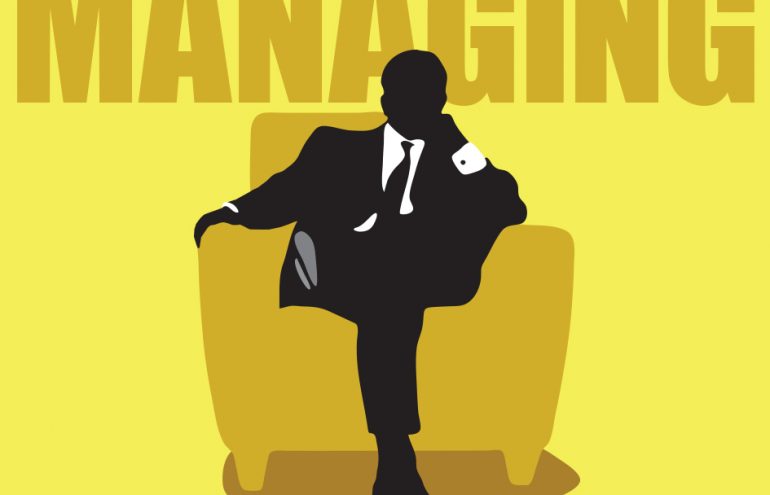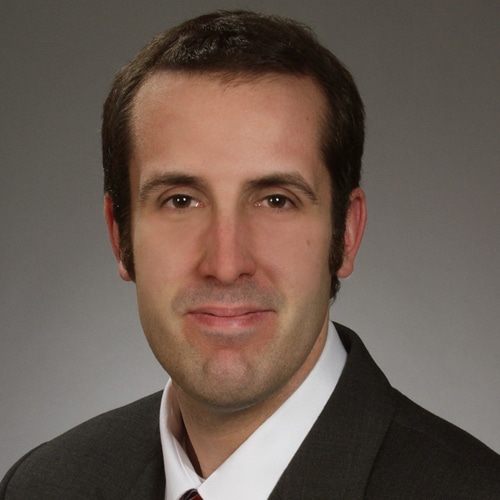There are some tough law firm management lessons to be derived from Michael Keaton’s portrayal of Ray Kroc in ‘The Founder.’

Table of contents
Have you seen the new Michael Keaton movie where he plays a bad guy? No, I’m not talking about his excellent turn as the Vulture (probably the best recent Marvel movie villain) in the latest Spiderman movie. Did you see him as Ray Kroc in “The Founder,” a late-life biopic of the great co-opter of McDonald’s?
I’m a sucker for historical drama, so when this movie came out, I was genuinely excited to see it. If you haven’t seen it, watch it (it’s on Netflix now), because I’m going to talk about it below.
I don’t think there are such things as spoilers for movies based on actual events, but if you don’t know the story of Kroc’s pilfering of McDonald’s, here’s a good rundown. The movie largely follows the real-life script, but my references below are to the movie.
Now, you may be asking yourself: Why write about this movie in Attorney at Work? Excellent question. It’s because there are law firm management lessons to be derived. (I’ve done this before. Trust me.)
Finding “The Founder”
Here are five business lessons lawyers can take away from “The Founder.”
1. You have to get lucky.
Luck is a real thing. If you look at the folks who make it big, luck often plays a larger-than-expected role. John Lennon and Paul McCartney randomly met at a church social. Tom Brady might never have seen the field if Mo Lewis hadn’t almost killed Drew Bledsoe. All kinds of products you use every day were invented by accident. In “The Founder,” the McDonald brothers just happen to order an unusually high number of mixers from a salesman named Ray Kroc, which leads to Kroc’s discovery of their innovative business model. Sure, he is curious enough to investigate — by driving halfway across the country to California. But if he was selling vacuum cleaners instead of blenders, we’d likely never have heard of Kroc, or of McDonald’s.
Before Kroc came into the picture, the McDonald brothers were having trouble selling their new walk-up business model to customers. Most of the fast-food restaurants at the time were drive-ups, where people would sit in their cars and honk for service. Then, one day, a random kid walked up and ordered his food from the window; one McDonald brother convinces the other to serve him, other customers line up behind the kid … and an American dynasty is born. If that boy never wanders up to the counter, maybe McDonald’s goes out of business. So, while it’s better to be lucky and good, it’s best to be lucky.
2. People won’t like what you’re doing.
Whenever you try to do something new or different, haters, gonna hate. McDonald’s original customers hated the new system until they figured it out. Of course, what’s interesting is how quickly, once they achieve a certain level of success, the McDonald brothers’ priorities change, as they move from innovation to traditionalism, in order to try to protect themselves, and their business. But this often happens where founders take great pride in what they’ve created and cling to it like a well-worn blankie. Success is the great softener.
In the movie, the brothers love their system, as it exists. Once they fall in with Kroc and he begins to push the envelope again — revisiting franchising, introducing a milkshake mix — the brothers grow more and more uncomfortable. Why? They had become comfortable with the model as it was and stopped thinking about the model as it could be. By the time Harry Sonnenborn delivered Kroc his second greatest stroke of genius — the Franchise Realty Corp., an entity that owns the real estate upon which new franchises are built — the McDonalds had spent too much time grousing behind the scenes to effectively overturn what had become a hostile takeover.
And, that’s the thing. What they don’t tell you about upsetting people in business is that, sometimes, what you need to do to succeed will make you uncomfortable. As a small-business owner, you must embrace that discomfort and use it to drive your business forward — or someone else will.
3. You have to want it more than anything (or anyone) else.
The McDonald brothers were comfortable carving out a small place in the world and running the best little hamburger stand in San Bernardino, Calif. Kroc, however, would not stop until he built an American colossus. And it’s clear from the start that was his vision. By the end of the movie, it’s revealed that one reason he didn’t outright steal the McDonald’s system was that he knew no one would buy hamburgers on a large scale from a restaurant called Kroc’s. He compares the golden arches to crosses atop churches, and American flags flying from flagpoles. He does not care whether milkshakes are made from ice cream or powder, so long as they can be made cheaply and sold in mass quantities.
There is a general recognition that big payoffs in business require big risks. Kroc embraces that; he can’t put a second mortgage on his home quickly enough. He is consumed with making McDonald’s a leviathan. He saw its true potential and was relentless in his follow-through, no matter who stood in his way. At the beginning of the film, Keaton’s Kroc is listening to a fictionalized version of “The Power of Positive Thinking,” repeating the mantras over and over again. The underlying message is that positivity is ultimately grounded in a willingness to never give up. That central theme reflects the driving force of the movie, and of Kroc’s life: that never giving up, that persevering, will ultimately cause the world to yield your way.
4. It’s not always about being nice.
So, here’s the thing: Ray Kroc was kind of a dick — even if “The Founder” establishes that point at its own pace. He’s the salesman’s salesman. The deal goes down his way; everything else is secondary. The list of people Kroc screws over could appear at the front of “The Iliad.”
But there isn’t anyone in the story who gets a rawer deal than the hapless McDonald brothers: See Dick and Mac lose a gold mine through lack of effective action. In the movie, Dick recognizes that Kroc is bad news (he describes him as a wolf in the henhouse), but brother Mac won’t act against the usurper, assuming (despite much evidence to the contrary) it will all work out for everyone in the end. Well, it works out for someone. Kroc appropriates the McDonald’s system, the golden arches, founds the Franchise Realty Corp., starts sending powdered milkshake mix to franchisees, breaks his original contract with the brothers, and finally rolls up on Mac’s hospital bed (when Kroc-induced stress has resulted in heart problems) and offers to buy McDonald’s.
You already know the brothers relent. For their trouble, they each receive checks for $1.3 million. A handshake deal is also made for a small percentage of profits, to be received in perpetuity. Of course, Kroc reneges on that handshake deal. Then, for the coup de grace, Kroc opens a restaurant across the street from the brothers’ original location and puts them out of business — finally sticking the garden hose into their waiting mouths.
Nobody’s saying you have to go scorched earth, next-level evil to build a successful business. But you’ve got to be tough. At least tougher than the McDonald brothers. And please: No handshake agreements!
5. You don’t have to be an innovator.
“The Founder” stands for the proposition that successful business people don’t have to have the best ideas … if they can steal the best ideas. There’s this tired notion of disruption that has taken hold in many business circles; the perversion of the original concept of disruption stands in for the argument that you must come up with completely novel methods that will turn your business vertical on its head, or it’s not even worth trying. The assumption is that new ideas are truly novel — which they never actually are.
The McDonald brothers did not invent a fast-food system; they improved on the existing fast-food system. They did not build the American fast-food infrastructure brick by brick or start from scratch. But somebody had to be meticulous about it, and Dick McDonald was. Kroc stole his improvement, but if there was a disruptor in the equation, it was Kroc and not the McDonalds. He was the one who forcefully carried their vision to its apex. Perhaps Kroc wasn’t the innovator but he caused the innovation.
Had the McDonalds been Kroc’s employees, nobody would think twice about his appropriation. But, since it was a business-to-business relationship, it’s easy to think that one party was taken advantage of by another. In the final analysis, though, the McDonalds, in many ways, allowed themselves to be taken advantage of — by a more serious business person.
And you know what? That’s how the world works.
Illustration ©iStockPhoto.com





















